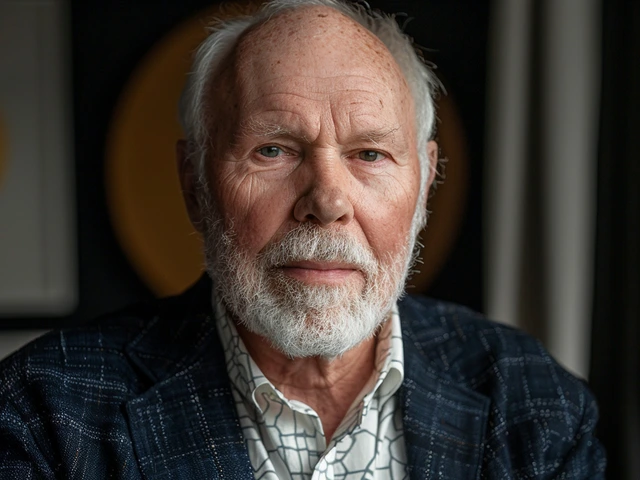UK PM Keir Starmer Vows Justice Against Anti-Immigration Protesters amid Unrest
Prime Minister Keir Starmer laid down a firm stance during his speech on Sunday, denouncing the recent anti-immigration protests across the United Kingdom as 'organized violent thuggery'. The unsettling incidents have sparked a wave of violence that has seen various parts of the country embroiled in chaos and turmoil.
At the heart of these protests lies a tragic incident involving the fatal stabbing of three young girls. The shocking event ignited tempers nationwide, resulting in multiple instances of heated clashes, especially in areas like Rotherham. There, the police were met with considerable hostility as protesters hurled a barrage of missiles trying to break into a hotel designated for asylum seekers. The conflict was serious enough to leave at least ten officers injured, one of whom sustained critical injuries.
An Unfortunate Mismatch of Facts and Perception
In his stringent rebuke, Prime Minister Starmer stressed that justice for those involved in these violent acts would be swift and uncompromising. Authorities, he reassured, are dedicated to upholding law and order, including collaborating with online platforms to track down individuals who incite such violence through digital means. Contradicting speculation, law enforcement clarified that the tragic stabbing, which served as the flashpoint for these protests, was not connected to terrorism. Importantly, they noted that the suspect behind the crime was actually born in the UK.
Starmer took particular aim at far-right agitators like Stephen Yaxley-Lennon, better known as Tommy Robinson, for their role in whipping up public sentiment through social media channels. The Prime Minister cited the extent of misinformation circulating online as a significant contributor to the mounting unrest and violence witnessed in recent days.
Government's Decisive Response
To counter the escalating disturbances, the government is deploying extra prosecutors to facilitate prompt legal action against offenders. Additionally, Prime Minister Starmer called for an emergency security meeting aimed at curbing the intensified unrest. In another significant announcement, he unveiled plans to establish a 'standing army' of specialist police units, specifically trained to handle such large-scale disorders so that peace can be quickly restored wherever conflict surfaces.
The government is not acting alone in this crisis. Interior Minister Yvette Cooper highlighted the pivotal role of online misinformation in sowing seeds of racial hatred and igniting violence. Cooper is stressing the need for robust mechanisms targeting not just the perpetrators on the ground but also those spreading dangerous falsehoods via the internet.
A Turning Point for the Nation
The events unraveled in such a way that a discernible fraction of the population fell prey to an overpowering wave of misinformation. This episode underscores the significant challenges posed by unchecked narratives, rapidly spreading false information, and manipulated social media content in today's digital age.
Prime Minister Starmer's pledge to deliver swift justice not only addresses the immediate need to quell the violence but also serves as a crucial moment for reflection on the broader implications of public misinformation. As the government intensifies its efforts to restore peace and security, the coordinated reaction from various national agencies also illustrates an essential proactive approach to avoid similar crises in the future.
The Broader Picture
What remains to be seen is how these measures will resonate with the populace and whether they will effectively quell the present turbulence while discouraging future outbreaks of such disturbances. The promise to set aside specialist police units highlights a long-term commitment to dealing with organized disorder efficiently. In parallel, enhancing digital surveillance to clamp down on online instigators also points to a comprehensive strategy that's sensitive to the multifaceted nature of the problem.
The Prime Minister's resolute stance represents a definite turning point, reminding citizens that violence and unlawful behaviors, however discursively justified, will never be tolerated. It stands as a strong message, aimed at restoring public confidence in the country's ability to safeguard its democratic values and maintain public order. Ultimately, this chapter in the nation’s history may well serve as a sobering reminder of the importance of reasoned judgment and verified facts in sustaining social harmony and justice.







Bruce Moncrieff
August 5, 2024 AT 20:50 PMWe need to rally together, stand up for the victims and send a clear message that this organized chaos won’t be tolerated!
Dee Boyd
August 5, 2024 AT 21:10 PMThe ethical breach herein represents a systemic failure of civic integrity, exacerbated by extremist populist rhetoric and algorithmic amplification of disinformation that undermines societal cohesion.
Carol Wild
August 5, 2024 AT 21:35 PMThe narrative being forced upon the public is nothing short of a manufactured crisis engineered by shadowy elites.
It is clear that the media conglomerates have a vested interest in inflaming tensions to boost viewership metrics.
Moreover, the so‑called “government response” is merely a facade designed to give the illusion of control while the real power brokers remain insulated.
One must consider the historical pattern of crises being used as pretexts for expanding surveillance apparatus.
The deployment of a “standing army” of specialist police units echoes the 1930s model of state repression.
This is not an isolated event but part of a broader agenda to curtail civil liberties across the Western bloc.
The involvement of online platforms in tracking down agitators is a thinly veiled admission that the state is colluding with Big Tech to create a digital panopticon.
The victims of the stabbing, three innocent girls, have been turned into political pawns in a saga that serves to distract from deeper socioeconomic inequities.
The right‑wing agitators, such as the infamous Tommy Robinson, are utilized as scapegoats while the true architects remain behind the curtain.
The claim that the suspect was born in the UK is an attempt to neutralize any narrative of foreign infiltration, thereby preserving the myth of a homogeneous national identity.
In parallel, the emphasis on “misinformation” conveniently sidesteps the fact that mainstream outlets often propagate their own distortions.
This duality of accusation and denial reveals a sophisticated information warfare strategy aimed at polarizing the electorate.
Citizens are being fed a diet of fear and anger, which serves the purpose of justifying extraordinary powers.
The emergency security meeting mentioned by the Prime Minister is, in effect, a convening of the security‑state elite to coordinate the next wave of control mechanisms.
Ultimately, the populace will be left to navigate a landscape where truth is subordinate to engineered consent.
Rahul Sharma
August 5, 2024 AT 22:09 PMIndeed, the historical precedents you cite, such as the 1930s repression, illustrate a pattern; the establishment of specialist units, however, can also be justified by the need for rapid response to coordinated violent outbreaks; what is crucial is ensuring that these forces operate under strict judicial oversight, transparent reporting mechanisms, and clear rules of engagement, thereby preventing the erosion of civil liberties while maintaining public safety.
Emily Kadanec
August 5, 2024 AT 22:50 PMi think the gov already has a plan but they should be more clear with the public about how they will protect asylum seekers
william wijaya
August 5, 2024 AT 23:40 PMThe emotional toll on the communities involved cannot be overstated; when families see their children harmed and their neighborhoods become battlegrounds, the collective psyche suffers a deep wound that demands comprehensive mental‑health interventions alongside the legal actions.
Lemuel Belleza
August 6, 2024 AT 00:39 AMThese measures sound like overreach.
faye ambit
August 6, 2024 AT 01:45 AMWhile acknowledging the trauma, it is essential to balance security initiatives with inclusive dialogue, fostering a societal framework where empathy and rational discourse guide policy rather than fear‑driven reactions.